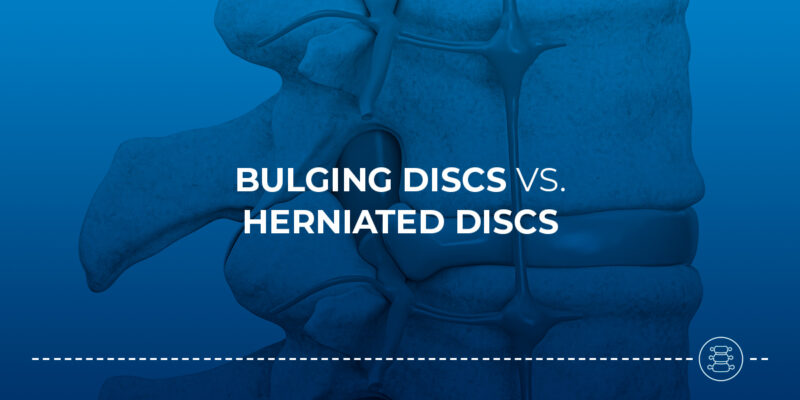

People often refer to bulging discs and herniated discs interchangeably. While both terms describe conditions related to the spine, they are not the same. Keep reading to learn more about the distinctions between bulging and herniated discs.
Discs in the spine act as cushions between your vertebrae and keep the bone rubbing on other bones. They are made up of tough cartilage on the outside and soft cartilage in the center. Over time, these discs can show some wear and tear, eventually leading to complications like bulging and herniated discs.
A bulging disc affects the tough cartilage’s outer layer as it expands outward. This issue can happen as the discs dehydrate and the cartilage stiffens. You can think of a bulging disc like a hamburger that is too large for the bun.
A herniated disc affects the spinal disc’s outer and inner layers. When a herniated disc occurs, a crack in the tough cartilage causes the soft inner layer to spill out. Unlike a bulging disc, only a tiny area of the disc is affected, not the whole circumference.
A herniated disc is likely to cause more pain than a bulging disc as it can press into the spinal cord nerves, leading to painful inflammation in the back.
Bulging discs can occur for various reasons, such as disc degeneration, spinal injury and other spinal compressions. Symptoms of a bulging disc can depend on its location along the spine. However, you may experience back muscle spasms, worsening back pain with movement, numbness in legs and feet and reduced coordination.
The treatment for a bulging disc might include:
Herniated discs are likely the results of disc degeneration over time. As we age, our spinal discs become less flexible and prone to accidents — like twisting or minor strains. While no specific event causes herniated discs, some risk factors include excess body weight, physically demanding jobs and genetic predisposition.
Like bulging discs, herniated discs can be managed with medications, therapy and — in rare cases — surgery.
If you are concerned about the possibility of having a bulging or herniated disc, let the experts at New York Spine Institute help. Schedule an appointment with us today.